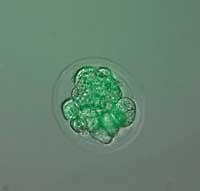Why do women live longer?
2010/11/20 Aulestiarte Lete, Izaro - Elhuyar Zientziaren Komunikazioa

The tendency to premature death of men has been based on numerous occasions on the development of hard or stressful work activities. But in recent years this theory has been distorted by the presence and responsibility of women in the labor world, both inside and outside the home.
Another hypothesis is that women live longer, since men, in general, have a greater propensity to acquire unhealthy habits (such as tobacco and alcohol), and that does not care so much for food. But this theory has contradictions: among other things, the number of women smokers has increased, many consume alcohol and there are those who do not care much about food.
In addition, although they live longer, why is the health of older women worse than that of men of the same age? And in most other animals, is it by chance that the survival of females is better? For it seems that we must seek the explanation of all this in something that goes beyond life and customs.
For the gerontologist and professor Tim Kirkwood of the University of Newcastle, the explanation is at the bottom of our biological universe; the difference in life expectancy is due to the genetic composition of each gender. That is, according to Kirkwood, male body cells are not genetically programmed to survive so many years. In other words, women live longer because they are “more necessary” from the evolutionary point of view.

Disposable soma
Kirkwood's approach has been published by the journal Scientific American. But it is not new, since the author exposed his essence in 1977, under the title “Theory of Disposable Soma”. The soma is the group of cells of the organism that are not reproductive cells (opposed to the germ).
This theory explains why the human being is not eternal. For the germ is immortal (lasting from generation to generation) and the soma is “to use and pull”, different from generation to generation. In order to function properly, our body needs constant maintenance, organisms must use the resources available to survive and reproduce. However, the development, maintenance and repair of the soma (for example, the damage that appears in the cells) require a lot of energy, until the person dies after a few years. According to this theory, the female organism is better prepared to combat damage, especially because they are responsible for reproduction. “Genetically the man is more “disposable” than the woman.”

“Body mechanisms are very effective in maintaining and repairing cells, but they are not perfect. We age because the body makes mistakes, says Kirkwood. The genes turned our bodies into short-term vehicles, a vehicle that stays quite well to grow and reproduce, but not to survive.”
A few years ago, in the Kirkwood laboratory it was seen that older animals have better maintenance and repair systems. “They are faster or have been developing evolutionary adaptations that allow them to escape, such as wings. It is also scientifically proven that the cells of the females repair better than those of the males the damage of the organism”.
The results of a study conducted in Japan last year confirm their theory that the “concern” for the least survival of men could correspond to the RasgrF1 gene of sperm. Using the genetic material of two mother rats, two female offspring were formed (for this purpose the DNA of an egg was transformed to act as the sperm). Well, the offspring of two mother rats survived 186 days more than those of a male and a female.
In addition to most other species, the situation of the female body is very important to ensure the success of reproduction: “The fetus grows in the uterus of his mother, who has to give her breast. Therefore, an excessive affectation of the mother's body is a danger to healthy descendants. The reproductive function of men is less related to the state of health. In addition, large amounts of testosterone increase male fertility, but is harmful in terms of prolonged survival.”
Published in Ortzadar.

Gai honi buruzko eduki gehiago
Elhuyarrek garatutako teknologia





